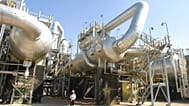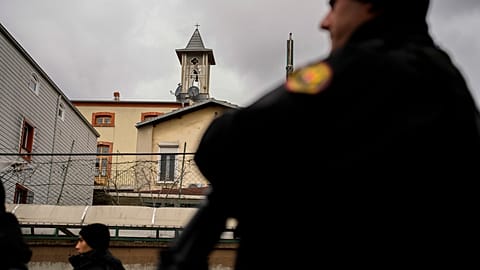This hike is the latest move to control soaring inflation, which has left several households unable to afford basic necessities.
Turkey’s central bank has raised its key interest rate by another 2.5 % today (Thursday 25 January), pressing ahead with a series of hikes aimed at combating inflation that reached nearly 65% in December.
The bank brought its benchmark rate to 45%. This marks the eighth interest rate hike since President Recep Tayyip Erdoğan abandoned his unconventional economic policies that economists say helped trigger a currency crisis and drove up the cost of living. Many households were left struggling to afford basic goods.
Erdoğan is a longtime proponent of an unorthodox policy of cutting interest rates to fight inflation, which runs contrary to mainstream economic thinking.
In contrast, central banks around the world raised interest rates rapidly to target spikes in consumer prices tied to the rebound from the COVID-19 pandemic and then Russia’s war in Ukraine.
January hike may still not be enough to tame inflation
In Turkey, the central bank said it would "continue to decisively use all the tools at its disposal in line with its main objective of price stability."
Analysts said, however, that the rate increase may not be sufficient to curb inflation. "The cumulative tightening of 3,650 basis points may not be enough to decisively tame Turkey’s long-standing inflation problem," Bartosz Sawicki, market analyst at Conotoxia fintech, said in a note to AP.
He added that his group did not expect further hikes ahead of local elections scheduled for March.
"A 2.5% increase in interest rates to 45% is unlikely to be enough to start to bring down inflation in the near future," said Cagri Kutman, a Turkish market specialist at London-based KNG Securities.
Turkey makes a hasty U-turn in monetary policy
Turkey's leader reversed course on his economic policies after winning a third term in office in May. Erdoğan appointed a new economic team headed by former Merrill Lynch banker Mehmet Şimşek, who returned as finance minister.
Hafize Gaye Erkan, a former US-based bank executive, took over as central bank governor in June, becoming the first woman to hold that position in Turkey. Under her tenure, borrowing costs have increased from 8.5% to the current 45%.
Previously, Erdoğan had fired central governments who reportedly resisted his push to cut interest rates.
Last week, Erkan denied allegations by a Turkish newspaper claiming that her father was exerting influence over the bank and had fired a bank employee. The allegations had led to speculation about Erkan's possible removal from office.
President Erdoğan, however, came out in support of the central bank governor this week, dismissing the report as "irrational rumours designed to destroy the climate of trust and stability in the economy that we have achieved through great difficulty."


















